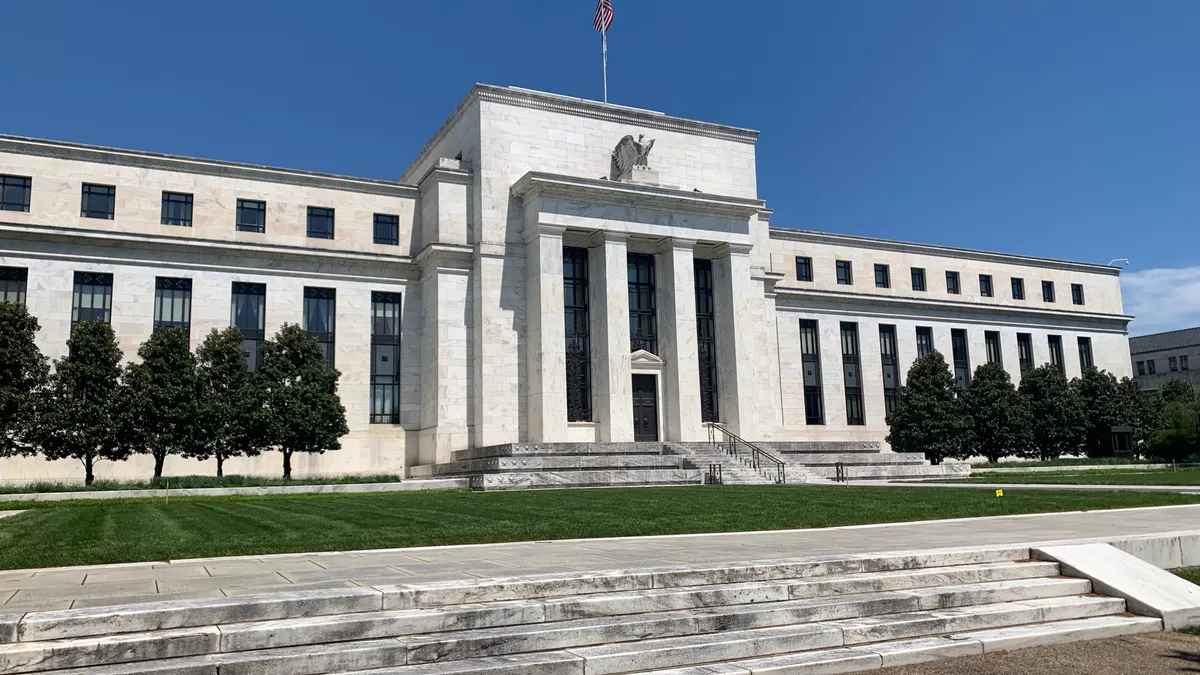Richard Clarida, the Federal Reserve's vice chair, resigned Monday, effective Jan. 14 — less than three weeks before his four-year term was scheduled to end — as a stock-trading scandal that deepened last week raised questions of a conflict of interest.
It also had the potential to tank central bank Chair Jerome Powell's chances at renomination. Powell appeared Tuesday in front of the Senate Banking Committee, where he faced questions on the controversy.
Sen. Elizabeth Warren, D-MA, earlier Monday asked the Federal Reserve to "release all available information" regarding Fed officials' stock trades by Jan. 17, in light of reports last week that Clarida filed an amended financial disclosure revealing he sold an exchange-traded fund Feb. 24, 2020, then re-bought it Feb. 27 — a day before Powell issued a statement signaling the central bank might cut interest rates.
"I am deeply concerned that your continued refusal to release information about Fed officials’ trading is at odds with your stated commitment to address the scandal 'forthrightly and transparently,'" Warren wrote to Powell on Monday. "It raises suspicions that the Fed may be failing to disclose the full scope of the scandal to the public."
Warren, in a tweet Monday, said she was "glad Richard Clarida resigned after public outrage for his unethical actions, but many questions remain."
"American people & Congress need full transparency & accountability for potential illegal insider trading by @FederalReserve officials," she wrote.
Clarida, in his resignation letter to President Joe Biden, did not mention the stock-trading controversy — focusing instead on the Fed’s response at the start of the COVID-19 pandemic.
"We, in a matter of weeks, put in place historic policy measures that, in conjunction with fiscal policy, steered the economy away from depression and that have supported a robust recovery in economic activity and employment since," Clarida wrote. "There is still road left to walk and damage to be repaired."
Clarida is set to return to Columbia University next week, where he teaches economics.
Powell, in a statement Monday, said Clarida’s "contributions to our monetary policy deliberations, and his leadership of the Fed's first-ever public review of our monetary policy framework, will leave a lasting impact in the field of central banking."
Norman Eisen, a senior fellow at the Brookings Institution, characterized the resignation as "strikingly devoid of content," according to the Financial Times.
"That is a very loud silence," he said. "With every new development, the questions about what was going on only become more profound."
Third resignation
Clarida would be the third high-ranking Fed official to resign — following regional presidents in Dallas and Boston — after being connected to 2020 trading activity revealed in financial disclosure forms. The activity, uncovered in September and October, meets the Fed’s code of ethics but has generated blowback because of the information to which Fed officials are privy.
The Fed, for its part, issued new rules in October barring its board governors, 12 regional presidents and senior staff from buying individual stocks, holding investments in individual bonds or agency-backed securities, or entering into derivatives. Senior officials’ future investments would be limited to "purchasing diversified investment vehicles, like mutual funds," the Fed said.
Policymakers and senior staff, under the new rules, would have to provide 45 days’ notice before buying or selling any allowed securities, must obtain approval for those transactions, and must hold any investments for at least a year, the Fed said. "Further, no purchases or sales will be allowed during periods of heightened financial market stress," the central bank said.
Included in Clarida’s amended disclosure is a statement from a Fed ethics officer asserting, "I continue to believe that Mr. Clarida is in compliance with applicable laws and regulations governing conflicts of interest."
"It is a really big stretch for the ethics officers to be defending these transactions," Kaleb Nygaard, senior research associate at the Yale Program on Financial Stability, told Bloomberg. "This is an issue of public confidence."
The initial disclosure, reported in October by Bloomberg, uncovered Clarida’s Feb. 27 activity but not the Feb. 24 sale. A Fed spokesperson said the amended disclosure came after Clarida noticed "inadvertent errors" in the original filings.
"The initial Clarida trades were bad enough, but the incomplete reporting is inexcusable," David Wessel, director of the Center on Fiscal and Monetary Policy at the Brookings Institution, told the Financial Times in a Monday report.
A Fed spokesman in October described the Feb. 27 transaction as part of a "pre-planned rebalancing" of Clarida’s accounts. That characterization has come under scrutiny in the face of the amended disclosure.
"The whole rebalancing story, that just collapses in the face of the fact that he sold and then bought," Simon Johnson, an economist at the Massachusetts Institute of Technology, told The New York Times. "If you are Chair Powell, you don’t want to have your reconfirmation hearing focused on this."
The Fed’s inspector general committed in October to investigating the trades. Warren additionally called for the Securities and Exchange Commission (SEC) to probe the activity, which the senator said, in a letter to SEC Chairman Gary Gensler, "reflect atrocious judgment."
In her letter to Powell on Monday, Warren said Clarida’s amended disclosure "is just the latest evidence of a deep-rooted ethics failure at the Fed and the urgent need for a comprehensive information release about officials’ trading activity."
Warren, who serves on the panel before which Powell is appearing Tuesday, said as early as September she would oppose Powell’s renomination to lead the Fed.
Her request Monday for more information from the Fed over officials' stock transactions is not her first. She said the central bank had not responded to October or December requests she made on the matter.
The nominee to fill Clarida's post, Fed Governor Lael Brainard, faces her own hearing Thursday in front of the Senate Banking Committee.






















